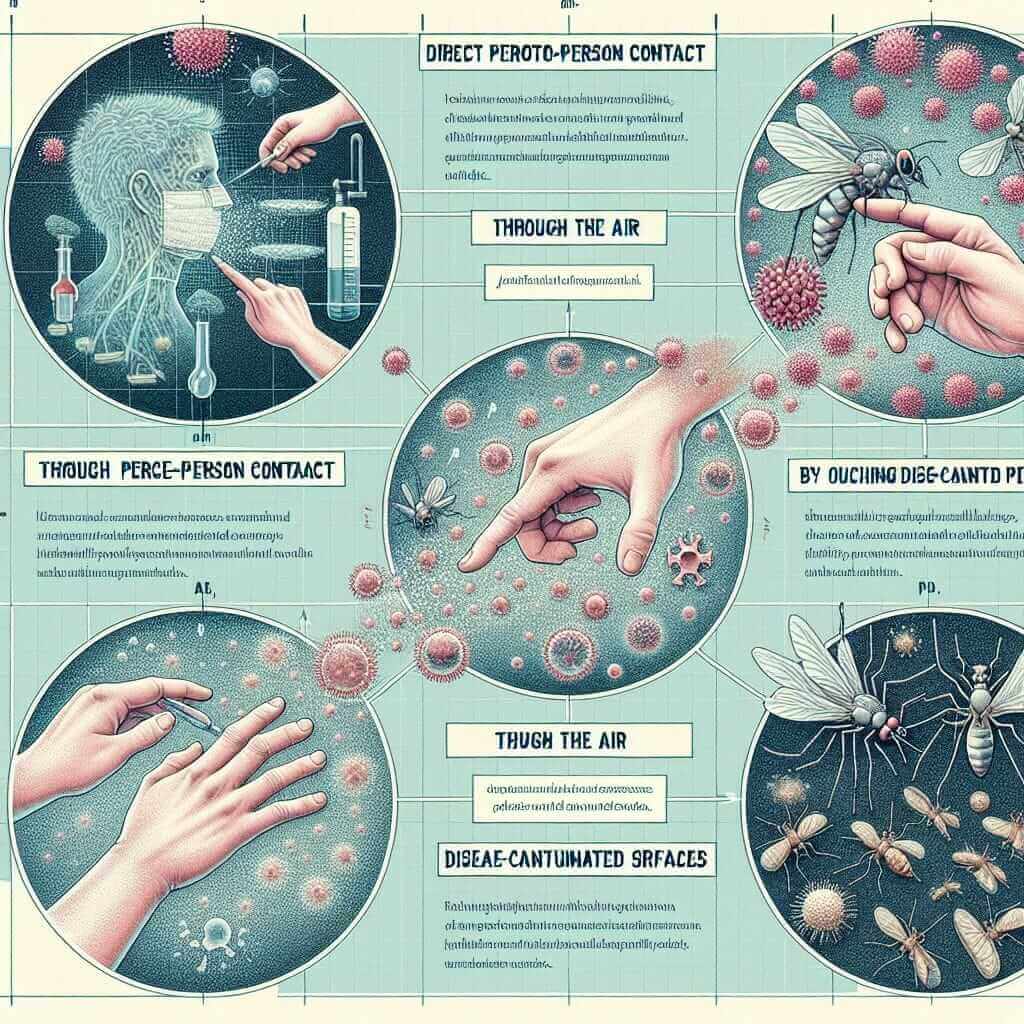Aspiring healthcare professionals taking the IELTS often encounter the term “infectious disease”. Understanding its usage, along with related vocabulary, is crucial for achieving a high score. Let’s break down this important topic:
- Infectious disease: (noun) /ɪnˈfekʃəs dɪˈziz/ – A disease caused by a pathogen that can be spread from one person, animal, or object to another.
Synonyms & Related Terms:
- Communicable disease: This term emphasizes the ease of transmission. Example: Measles is a highly communicable disease.
- Contagious disease: Similar to communicable, highlighting direct contact transmission. Example: The flu is a contagious disease that spreads quickly in schools.
- Transmissible disease: This term broadly encompasses any disease that can be passed on. Example: Researchers are studying new ways to prevent the transmission of transmissible diseases.
- Outbreak: (noun) /ˈaʊtbreɪk/ – The sudden occurrence of a disease in a community. Example: The WHO responded swiftly to the Ebola outbreak.
- Epidemic: (noun) /ˌɛpɪˈdɛmɪk/ – A widespread occurrence of a disease in a particular region. Example: The obesity epidemic is a growing concern in many countries.
- Pandemic: (noun) /pænˈdɛmɪk/ – An epidemic that has spread across multiple continents or worldwide. Example: The COVID-19 pandemic had a profound impact on global health.
“Infectious Disease” in IELTS Exams
This vocabulary appears frequently in the IELTS, especially in the Listening and Reading sections, often within the context of public health, medical research, or societal issues. It can also emerge in the Writing and Speaking sections when discussing health challenges or preventative measures.
Let’s analyze how this vocabulary can be applied effectively:
IELTS Writing Task 2:
Question: Some people believe that the government should invest more in preventing infectious diseases, while others think that it is more important to focus on treating existing diseases. Discuss both views and give your own opinion.
Sample Response:
“The allocation of healthcare resources is a complex issue, particularly when considering the prevention and treatment of infectious diseases. While some argue for increased funding towards preventative measures like vaccination programs and public health education, others prioritize the immediate need to treat existing patients and research cures for contagious diseases. This essay will delve into both perspectives before presenting a balanced viewpoint. ”
Analysis:
- The response directly addresses the prompt using keywords like “infectious diseases” and “preventative measures.”
- Synonyms like “contagious diseases” showcase a wider range of vocabulary.
- The response is structured and presents a clear argument.
IELTS Speaking Part 3:
Examiner: What are some of the biggest health challenges facing the world today?
Candidate: ” In my opinion, infectious diseases continue to pose a significant threat. The rise of antibiotic resistance and the emergence of new transmissible diseases, like COVID-19, highlight the need for global cooperation in research and development of effective treatments and preventative strategies.“
Analysis:
- The candidate uses “infectious diseases” naturally and accurately.
- Including examples like “antibiotic resistance” and “COVID-19” demonstrates knowledge of current health issues.
- Using terms like “transmissible diseases” and “preventative strategies” shows a strong vocabulary range.

Combining “Infectious Disease” with Other Vocabulary
To demonstrate fluency and precision, combine “infectious disease” with other relevant terms:
- Outbreak control: “Effective outbreak control measures are essential to contain the spread of infectious diseases.”
- Public health infrastructure: “Strong public health infrastructure plays a crucial role in preventing and managing infectious disease outbreaks.”
- Global health security: “Investing in global health security, including surveillance and early warning systems, is paramount to mitigating the risk of pandemic outbreaks.”
Relevant Idioms and Expressions:
- Nipping it in the bud: This means to stop something at an early stage. Example: “Early detection and isolation are crucial for nipping a potential infectious disease outbreak in the bud.“
- A stitch in time saves nine: Addressing problems promptly prevents larger issues. Example: “Investing in public health infrastructure is a stitch in time saves nine, potentially preventing widespread infectious disease outbreaks.”
Conclusion
Mastering the vocabulary related to “infectious diseases” is highly valuable for IELTS success, particularly for those interested in healthcare fields. By understanding the terms, using them accurately in context, and connecting them to broader health themes, you can significantly enhance your performance on the exam. For further practice, consider exploring IELTS materials related to topics like public health, epidemiology, and global health challenges. To deepen your understanding of how we can combat infectious diseases, you can also read this informative article: https://www.ielts.net/how-can-we-reduce-the-spread-of-infectious-diseases/